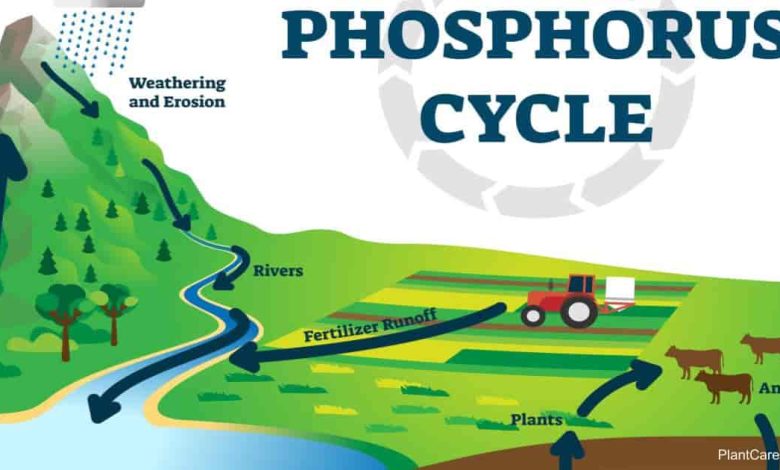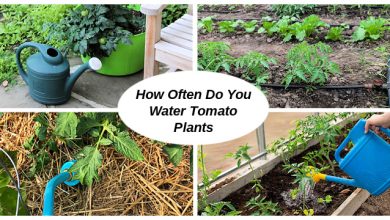Phosphoric Acid: What is it and how can we take advantage of it in the garden?

Phosphoric acid, also called orthophosphoric acid, is an acidic chemical compound whose formula is H3PO4. It has a transparent, slightly yellowish liquid appearance.
 It was discovered in 1777 by Karl Wilhelm Scheele and Johan Gottlieb Gahn, applying Nitric Acid on bone ashes.
It was discovered in 1777 by Karl Wilhelm Scheele and Johan Gottlieb Gahn, applying Nitric Acid on bone ashes.
Among its characteristics is that it prevents the growth of mold and bacteria in sugar solutions, which is why it is widely used in the manufacture of sodas and other carbonated beverages. It is also used to sanitize areas where food is processed.
Due to its phosphorus content, it is widely used in gardens and orchards as a fertilizer.
Some ofthe most outstanding properties of phosphoric acidare:
- Density relative to water.
- Water solubility.
- Resists vapor pressures.
- Relative vapor density.
- It is stored and distributed in solution.
Why is phosphorus important in the substrate?
All plants need the right balance of minerals and nutrients in order to grow. Phosphorus is one of the most important minerals because it helps regulate protein synthesis.
It is also important for cell division and the development of new tissue, and is associated with complex energy transformations in the plant, helping to form organic compounds.
It is also involved in cellular respiration, as well as in the transport and storage of energy (photosynthesis). Promotes the formation of flowers and advances maturation.
Add phosphorus to the soil promotes rooting, growth and strengthening of the root,winter hardiness and helps hasten maturity.
In contrast, phosphorus-deficient plants are stunted and often have an abnormal dark green color.
At low levels of phosphorus, the plant reduces the level of flower production and therefore fruit set.
How is phosphoric acid obtained?
Among the most common manufacturing methods we find:
- Dry route: solid white phosphorus is burned in a combustion chamber, enriching it with oxygen (P2O5). From here, the element dissolves forming phosphorus pentoxide.
- Wet method: calcium phosphate rock phosphate is reacted with mineral acids, such as sulfuric acid. Phosphoric acid is obtained from this reaction and another way of obtaining it consists of burning phosphorus vapors and treating the resulting oxide with steam, lime sulfate or gypsum.
Phosphoric acid is normally stored and distributed in solution and is rarely used for direct application due to its corrosive properties.
Instead, it can be used to make other forms of phosphorous fertilizers such as:
- Superphosphoric acid (0-79-0), which is obtained by removing water from phosphoric acid. This product is a mixture of polyphosphate and orthophosphate. It is less corrosive than orthophosphate and can be stored in sub-zero temperatures. This acid is used to produce ammonium polyphosphate fertilizers.
- Ordinary superphosphate (0-20-0 + 12S), very popular for sandy Nebraska soils, especially where alfalfa is grown; but its use has declined as higher testing materials become available at lower cost.
- Concentrated superphosphate (0-46-0), which is made by reacting phosphoric acid with finely ground rock phosphate. The granular product is predominantly monocalcium phosphate, which is 85-95 percent soluble in water. The latter has replaced ordinary superphosphate as the main phosphorus fertilizer. It can be used for direct soil application and is often used in bulk mixed products.
Why is it a good fertilizer?
Solid phosphate fertilizers do not always penetrate into the substrates and their components tend to diminish their effect over time.
For this reason, much more efficient alternatives have been sought for crops, so that the nutrients can penetrate the soil and are more accessible to the plants.
One of these alternatives is fertigation, which allows the applicationsimultaneous supply of water and fertilizers through the irrigation system.
Fertigation allows high yields, better use of water and nutrients, lower nutrient losses and controlled applications during crop development. The advantages of the system are enhanced by the use of soluble phosphorus, such as phosphoric acid.
Phosphoric acid tends to accumulate in the soil, detecting very high values in sites with more than two consecutive years of cultivation. This is quite advantageous, especially for those crops and plants with very deep roots.
What are the main advantages of phosphoric acid?
Among other things, the use of phosphoric acid offers better penetration, better dispersion of nutrients, conversion of natural phosphates in the soil to more soluble compounds, and savings in labor and equipment.
It turns out aeffective alternative when you want to prepare acidic liquid solutions,without the need to dilute a solid.
Also:
- Prevents obstructions in irrigation systems.
- It can be used in a fertilizer plan without the need to use acid.
- It has a high concentration of phosphorus soluble in water (between 52 and 54% w/w).
- It is liquid, so it is comfortable to use.
- Cost savings, compared to solid fertilizers.
Where can I buy phosphoric acid?
We have always bought it on Amazon and we have had a good result. So we also recommend it. Here below we present a series of options.
Growth Technology GTD1LS Growth Technology Ph Down 1L, 22x8x8 cm
- 81% phosphoric acid
- If the level is higher than 6 5 we will have to add a drop of ph down
- Add all fertilizers and supplements to the irrigation water
- Recommended Ph for our plant to assimilate the maximum range of nutrients are between 5 5 and 6 8
€11.60 View on Amazon Prices with VAT without transport Nortembio Agro Organic pH Reducer 1 L. Universal use. Descaler for Irrigation Systems. Crops with Better Flavor and Aroma.
- TRIPLE ACTION. The use of our product in agriculture and gardening offers multiple benefits: it reduces…
- ECOLOGICAL. Product endorsed by the CAAE Ecological Certification Body for use in agriculture…
- UNIVERSAL USE. The NortemBio Agro pH Reducer is recommended for all types of crops, whether they are soil,…
- BEST RESULTS. Our product controls the optimum pH level, favors the assimilation of nutrients and stimulates…
€12.95 View on Amazon Prices with VAT without transport Growth Technology – pH Regulating Fertilizer PH Down 250 ml
- Hydroponics PH down PH Growth Technology control tester
View on Amazon Prices with VAT without transport
Last updated on 2022-07-27 / Affiliate Links / Affiliate API Images


![Photo of Pests and Diseases of Weeping Willow: [Detection, Causes and Solutions]](https://www.complete-gardening.com/wp-content/uploads/2021/06/sauce_lloron_1603640600-390x220.jpg)
![Photo of 15 Shade Climbing Plants: [Characteristics and Images]](https://www.complete-gardening.com/wp-content/uploads/2022/08/15-shade-climbing-plants-characteristics-and-images-390x220.jpg)
